My new book is out, and I want as many people to read it as possible, which means I want to make it as easy as possible for you to read.
So here is what I am going to do … First, I am going to include the first chapter of the book below. And then I will share with you two steps you can follow on how to start reading the rest of the book for free. This will allow you to know whether or not you want to buy the book. I’m allowing you to “Try before you buy!”
Start Reading my New book for Free
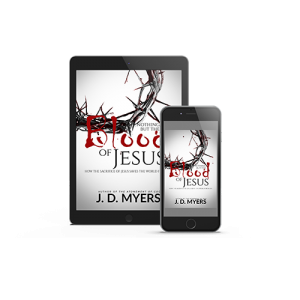 I intentionally created a way for you to start reading Nothing but the Blood of Jesus for free. Here are the steps.
I intentionally created a way for you to start reading Nothing but the Blood of Jesus for free. Here are the steps.
1. Have a way to Read Kindle books from Amazon
If you have a Kindle eReader, then you’re already set. Move to step 2 below.
If you don’t have a Kindle eReader, that’s no problem. Just download the (#AmazonAdLink) absolutely free Kindle Reading App from Amazon. You can put it on almost any device, including a computer, smartphone, or tablet. There’s no charge for it!
Once you’ve done this, Step 1 is done!
2. Get a 30-Day Free Trial to Kindle Unlimited on Amazon
Kindle Unlimited allows you read millions of books on Amazon for only $9.99 a month. But I have a way for you to get a free 30-day trial. (#AmazonAdLink) Just go here to sign up for your 30-day free trial of Kindle Unlimited.
Once you’ve done this, Step 2 is done!
3. Go download my new book and start reading
I put my book on Kindle Unlimited for the next couple months, so after you join Kindle Unlimited, you can start reading my book for free. (#AmazonAdLink) Go get it here and start reading today.
Note: This is just to try out the book for free
My book will not be on Kindle Unlimited forever, so if you start reading the book and really like it, you might want to purchase the Kindle version for yourself (it’s only $8.99 right now), since you already have the free Kindle Reading App.
If you prefer paperback books like I do, you can get in on Amazon as well for less than $15 (And if you want the paperback, you can (#AmazonAdLink) get free shipping by joining Amazon Prime for free for 30 days!)
No matter which option you choose, if you like the book, I would greatly appreciate it if you would buy a copy, since that helps encourage me and financially support my writing and online teaching ministry.
As you read, let me know what questions you have…
Now, here is the first chapter to get you started…
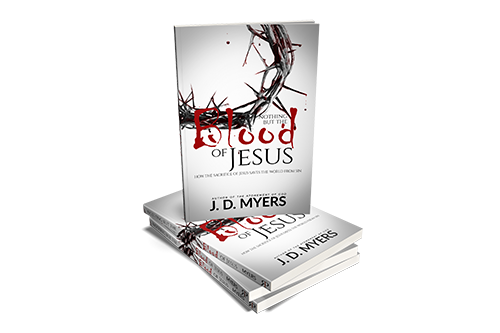
How Precious is the Flow?
Have you ever stopped to listen to what we Christians say and sing about the blood of Jesus?
Try to imagine what you would think about a group of people who regularly sang songs about founts of blood, washing in blood, and needing blood to be made whole? Imagine you are walking through a forest on a dark night and as you stumbled along, off in the distance you saw the light of a fire with people dancing around it. As you drew closer, you heard them singing the following song:
What can wash away my sin?
Nothing but this bloody sacrifice.
What can make me whole again?
Nothing but this bloody sacrifice.O precious is the flow that makes me white as snow;
No other fount I know; nothing but this bloody sacrifice.
I imagine that if you heard people singing this in the woods on a dark night, you would turn around and head the other direction. What if, however, you kept going, and as you drew closer, the song changed to this one:
Have you been to the altar for the cleansing power?
Are you washed in the blood of this man?
Are you fully trusting in his grace this hour?
Are you washed in the blood of this man?Are you washed in the blood,
In the soul cleansing blood of this man?
Are your garments spotless? Are they white as snow?
Are you washed in the blood of this man?
As your skin crawled with the implications of that song, the people then began to sing about plunging one another beneath a fountain of blood.
There is a fountain filled with blood drawn from our victim’s veins;
And sinners plunged beneath that flood lose all their guilty stains.
I think that instead of happily join this group of blood-crazed murderers, you would likely get out of the woods as fast as possible and then call the local police to report what you had heard. I can see the newspaper headline now: “Lone Hiker Discovers Ghastly Cult Bathing in the Blood of a Human Sacrifice.” When read outside of their Christian context, that is indeed what these songs bring to mind, is it not? These sorts of songs sound more like a gruesome and gory scene from a Freddy Krueger movie than from something to be joyfully celebrated. Yet when the words of the three songs above are sung as originally written so that they talk about the blood of Jesus Christ as the Lamb of God, we Christians happily sing them with gusto, and think that nothing is amiss.
Why is that?
ARGUING WITH MYSELF
If you have been brought up in the church as I have, you may not have ever stopped to consider what the songs we sing sound like to an outside observer. Just listen to yourself sing sometimes, especially around Easter, and ask yourself what the “uninitiated” might be hearing. I myself have done this, and here is how the conversation went in my head:
Me: What is this about washing in the blood of the Lamb? This sounds like some sort of ancient pagan ritual where the worshippers splashed blood on themselves as they went into the temple to worship their pagan god. Is this really what God wants from us? To bathe in the blood of Jesus. To swim in rivers of blood? To dance around fountains of blood? What’s the deal with all this blood?
Myself: Don’t take it all so literally! It’s only symbolic. It’s figurative. Nobody actually bathes in blood or dances in fountains of blood.
Me: I know that! But then why sing about it? Symbolic language must symbolize something, right? Figurative language points to some figure. So what is it? What does the blood of Jesus symbolize? And before you answer too quickly, if it’s only symbolic, are you saying that the death of Jesus was only symbolic? That He only died a figurative death?
Myself: Of course not. That would be heresy. Jesus died a real death in a real body. He shed literal blood. The symbolic part of those songs is in the washing and the bathing. We don’t literally wash and bathe in the blood of Jesus. We just symbolically imagine that His blood is cleansing and washing us from our sin.
Me: Okay … so we’re symbolically washing in literal blood? That still makes no sense to me.
Myself: Sigh. This is why I never debate theology with people who didn’t go to Seminary.
Me: What? You’re me. I’m you. We went to Seminary together.
Myself: Oh, right. Well, that must be why your theology is so messed up. What did they teach you at Seminary, anyway?
The conversation went on like this for quite some time—several decades, to be honest. During that time, Me, Myself, and I also read scores of books on the death of Jesus and engaged in numerous hours of conversation with other people about this subject. And do you know what I found? The books and the people that were most helpful and illuminating were those who were outside observers (even critics) of Christianity. They responded in horror to the Christian infatuation with the blood of Jesus. They view our songs and sermons about His blood in a way that is similar to how you or I might view a cultish sacrificial ritual deep in the woods on a dark night. It seems excessively gruesome and quite alarming to hear people celebrate the bloodletting of someone else.
To such critics, no answer we give, no verse we quote, no explanation we provide can ever do away with the fact that Christianity seems to worship a bloodthirsty deity who required the death of others in order to forgive sins and cleanse people of their iniquity. They complain that God is a cosmic child abuser who tortured His own Son in a twisted display of justice. They criticize God as being less loving and forgiving than regular humans, who can forgive others without the need for death and bloodshed. They point out that the Bible contains more commands for blood sacrifice and warfare against the enemies of God than any other religious book in history, including the Muslim Qur’an. They charge that no matter how much we claim that our God is loving and kind, He is really a God of bloody sacrifice, warfare, violence, and death.
CRITICIZING CHRISTIANS
I imagine you have heard some of the criticisms mentioned before. Most Christians have. And when confronted with these sorts of criticisms, we Christians typically make the situation worse by quoting Scripture. Forgetting that none of these critics consider Scripture to be authoritative, we sometimes think that a few Bible verses will solve the debate. We point out that since all have sinned and the wages of sin is death, everyone must die (Rom 3:23; 6:23). But God loves us, we say, and so He decided to pay the penalty for our sin Himself, which He did by sending Jesus, His own Son, to die in our place on the cross (John 3:16; Rom 6:10; 2 Cor 5:21; 1 Pet 3:18). After all, without the shedding of blood there is no forgiveness of sins (Heb 9:22). We say that someone must die for the sins of the world, and it was either us or God. Since God loves us, He took the bullet on our behalf and sent Jesus to die on the cross for the sins of the whole world.
When the non-Christian response to our “biblical answer” is less receptive than we would like, we shrug our shoulders and quote another verse. We say, “The message of the cross is foolishness to those who are perishing” (1 Cor 1:18), and then head off to our Bible studies and Sunday services where we continue to talk and sing about the blood of Jesus while avoiding or ignoring the hard questions that the watching world is asking.
But if we stick around, the follow-up questions to our “biblical answer” get even harder to explain. For example, if we say that the death of Jesus was necessary to forgive sins, people want to know why Jesus had to die in such a gruesome and bloody way. If we say that the wages of sin is death and so God needed death as payment for sin, people want to know why God set it up this way in the first place (Isn’t He God? Can’t He do what He wants?) and even then, what would have been wrong with just letting Jesus die from old age? Did Jesus really need to get tortured to a bloody death on the cross? And if we argue that God needed the blood of an innocent victim in order to remove the stain of sin from the world, the critic wants to know how killing an innocent victim is not a sin itself, and how the blood of such a victim can actually do anything for the sin of all people throughout all time. And these questions keep coming, harder and harder at every turn.
DON’T ASK HOW IT WORKS?
Due to the number of difficult questions surrounding the death of Jesus and His blood shed for us, it might simply be best to accept that the death of Jesus did something to help restore our relationship with God, even if we cannot understand what it was. For many, rather than agonize over seemingly unanswerable questions, it is preferable to recognize that since we are not God and cannot really understand the nature or the depth of our sin or the character and breadth of His righteousness, we will never be able to understand exactly what Jesus did on the cross or how His death accomplished it. In other words, it is enough, for many, to simply know that Jesus accomplished something, even if we cannot know what it was or how He did it. If this seems like a cop-out, do not worry; this is the approach that C. S. Lewis argued for in his book, Mere Christianity:
The central Christian belief is that Christ’s death has somehow put us right with God and given us a fresh start. Theories as to how it did this are another matter. A good many different theories have been held as to how it works …
Theories about Christ’s death are not Christianity: they are explanations about how it works. Christians would not all agree as to how important these theories are …
But I think they will all agree that the thing itself is infinitely more important than any explanations that theologians have produced. I think they would probably admit that no explanation will ever be quite adequate to the reality. But as I said in the preface to this book, I am only a layman, and at this point we are getting into deep water. I can only tell you, for what it is worth, how I, personally, look at the matter. On my view the theories are not themselves the thing you are asked to accept …
We believe that the death of Christ is just that point in history at which something absolutely unimaginable from outside shows through into our own world. And if we cannot picture even the atoms of which our own world is built, of course we are not going to be able to picture this. Indeed, if we found that we could fully understand it, that very fact would show it was not what it professes to be—the inconceivable, the uncreated, the thing from beyond nature, striking down into nature like lightning. You may ask what good it will be to us if we do not understand it. But that is easily answered. A man can eat his dinner without understanding exactly how food nourishes him. A man can accept what Christ has done without knowing how it works: indeed, he certainly would not know how it works until he has accepted it. We are told that Christ was killed for us, that His death has washed out our sins, and that by dying He disabled death itself. That is the formula. That is Christianity. That is what has to be believed. Any theories we build up as to how Christ’s death did all this are, in my view, quite secondary: mere plans or diagrams to be left alone if they do not help us, and, even if they do help us, not to be confused with the thing itself.
If you are one who rarely asks “Why?” or “How?” something works, then the answer of C. S. Lewis regarding the death of Jesus might be enough for you. Yet as much as I love and admire C. S. Lewis (he is my favorite author), his answer is not enough for me. Prior to attending Bible College and Seminary my educational background was in engineering. I chose that field because my entire life has been consumed with pursuing answers to the question “How?” How does this work? How can it be improved? How can it be explained? How can it be fixed? While numerous people like C. S. Lewis are content with simply knowing that something works, I am never content unless I know how.
Nor is the answer of C. S. Lewis enough for the average critic of Christianity. Critics of Christianity will not accept Lewis’ logic on the death of Jesus. They will not simply jump with blind faith into worshiping a deity who, to them, appears to be bloodthirsty, vindictive, and cruel. They will not simply accept and follow Jesus because Lewis says we don’t need to know why Jesus died or how His blood works to save us from our sin. For many, including myself, the how is the critical question. If the how is not answered, then we cannot know why Jesus died, and therefore, what God is like. And if we cannot know what God is like, then we cannot know whether or not He is worthy of our worship.
For if the Christian God truly is bloodthirsty, vindictive, and cruel, it is more of an act of pure worship to reject such a God than it is to worship Him in blind faith. Why? Because people become like the God they worship. If God is bloodthirsty and vindictive, and if God cannot love and forgive unless He receives payment with blood, then this is also how His followers will live and act toward others. Rather than live in love and forgiveness toward others, we will cry out for the death of our enemies, and will demand that “justice” be obtained through the price of bloody vengeance upon all who oppose us. And sadly, this is exactly how some Christians behave, as they pray for bombs to fall on Muslims and for Gays to go to hell.
The watching world sees this behavior by Christians, and understands that such behavior is nothing more than a logical extension of our theological belief in a God who demands blood payment for the forgiveness of sins. But we Christians don’t know where to turn. Though we recognize, and even condemn, the bad behavior of some groups within Christianity, and though we see how certain passages from a bloody Bible and certain ideas from traditional theology can lead these Christians to think that calling for the death of their enemies in truly within God’s will, few Christians have actually found a way out of the dilemma posed by the blood of Jesus.
We cannot, after all, deny the righteous justice of God. Nor can we deny the reality of human sin. And we definitely cannot deny that Jesus bled and died. But as long as we fail to adequately explain how all of these truths fit together, the Gospel message will never be good news to a dying world. Christianity needs better answers to the questions the world is asking, and this failure to explain how the blood of Jesus saves us from our sin is one of the main reasons so many people have abandoned Christianity over the last few decades.
A BETTER ANSWER
My hope is that the book you now hold in your hands provides a better answer. This book shows how God can be both just and the justifier of those who believe. It shows how sin truly is the problem of the world, and how the death of Jesus—even the violent and bloody death of Jesus on the cross—provides the solution and the answer for sin that the world is looking for. This book also shows how the non-Christian rejection of a bloody and violent deity is right in line with what Jesus revealed about God. In other words, when the world rejects a bloodthirsty god as being unworthy of our worship, they are not following Satan into error and evil, but are instead following Jesus into what He revealed to us about God. Much to our shock and chagrin, the non-Christian who follows his or her own heart into love for all people might be doing a better job worshipping the God revealed in Jesus Christ than the Christian who quotes Scripture and prays to God for the death of our enemies.
I understand that what I have just written might be a shocking statement to some. But it is not a statement I make lightly. It comes as the result of decades of research, study, reading, writing, and prayerful consideration of the biblical text. It also comes more recently from spending time outside the institutional church with so-called “non-Christians.”
When I first read Mere Christianity about thirty years ago, while I fully agreed that how the death of Jesus works was not nearly as important as the truth that it works, I intended to do my best in learning how. This is, after all, how my mind is wired. So I embarked on my investigation. I read and studied everything I could about the death of Jesus, the atonement, and the gospel. I studied Scripture constantly. I attended Bible College and Seminary. I pastored churches, preached sermons, taught Bible studies, and wrote books. I engaged in conversations about these topics with numerous different people from dozens of different backgrounds, beliefs, and perspectives.
Through it all, I followed a trail of breadcrumbs left by Scripture and the illuminating Holy Spirit so that every few months, I uncovered another piece of the theological puzzle. Many of these pieces were shocking or surprising, challenging everything I thought I knew. Some of the truths I learned were utterly inspiring, opening up whole new vistas of theological research and inquiry, and helping me see God in a whole new light. In the process of digging through the pages of Scripture for an understanding of how the death of Jesus saves the world from sin, I discovered a God I never knew existed, as well as some truths about Scripture, sin, and humanity that I never would have found in any other way. The quest for how led to some surprising discoveries about the who, the what, and the why.
If you are like me and want to know the how of things, the best approach would be to retrace with me the slow and steady slog through theological research of the last thirty years. But that would take too long and be too boring. It would read like the snippet of conversation I had with myself earlier in this chapter. Besides, I spent many of those years in theological missteps, exegetical rabbit trails, and, like Winnie the Pooh, retracing my own steps around and around in the snowy woods searching for a mythical beast of my own imagination.
So rather than take you on that long and circuitous journey, let me instead give you some of the central signposts which will point you in the right direction. This book contains those signposts. The ideas of this book are not everything I learned or discovered in the past thirty years of research, but they do explain where I am at now and what I have discovered. This book contains my best explanation so far for how the death of Jesus saves the world from sin.
And just as a preview, do you know what I have discovered so far? I have discovered that the blood of Jesus is more precious than I ever imagined. I have discovered that the blood of Jesus reveals certain truths to humanity that could never have been revealed to us in any other way. I have discovered that there is very good reason for the Bible to emphasize blood so much, that there is good reason for the New Testament writers to focus our attention on His blood shed for us. I have discovered that it was not just Jesus’ death, and not just Jesus’ blood, but that it was necessary for His blood to be shed violently.
I have discovered some truths that nothing but the blood of Jesus could have revealed to us. I have discovered how the blood of Jesus rescues and delivers us from sin like nothing else ever could. Once we understand how the blood of Jesus rescues the world from sin, we see why it was necessary for Jesus to suffer and die on the cross as He did, and how the entire bloody spectacle of the cross reveals a God who is more deeply in love with us than we ever before imagined. In the end, we see that there truly is something special about the blood of Jesus. The blood of Jesus truly does lead us to worship God and follow Him in love and forgiveness for the world.
If you join me in this journey by reading this book, you will discover the meaning of five words. These five words are Sin, Law, Sacrifice, Scapegoat, and Blood. If you understand these five terms, you will better understand the work of Jesus on the cross and how His death rescues us from sin. But as indicated above, these five words are not the only things I have discovered over the last several decades of research. As you learn about these five words, there are many related words that you might have questions about as well. Words such as salvation, wrath, forgiveness, justice, Kingdom of God, grace, world, satan, and gospel are also within the sphere of terms one might need to learn in the quest for understanding the crucifixion of Jesus. If you would like to learn more about these other words, all of them are found in my online theology course, The Gospel Dictionary, from which the ideas for this book were pulled. While this book only looks at five words, The Gospel Dictionary course looks at 52 key words of the gospel, all of which further support the themes of this present volume and provide greater understanding about what God has done for us in Jesus Christ and how we are to live in response. Understanding these 52 key words of the Gospel truly help make the Gospel “good news” again.
So are you ready to learn how the death of Jesus rescues the world from sin? If so, the journey begins with a look at everybody’s favorite subject: sin. But don’t skip the chapter because you think you already know everything about sin (maybe from personal experience). When it comes to sin, the phrase made famous by Inigo Montoya in The Princess Bride is quite appropriate: “You keep using that word. I do not think it means what you think it means.”
Want to Keep Reading?
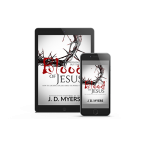 That is the first chapter in the book. Do you want to read the rest?
That is the first chapter in the book. Do you want to read the rest?
It’s simple, just follow the three steps from above:
- Download the (#AmazonAdLink) absolutely free Kindle Reading App from Amazon
- (#AmazonAdLink) Sign up for your 30-day free trial of Kindle Unlimited
- (#AmazonAdLink) Get my book and keep reading today


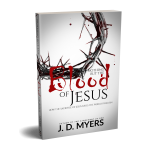
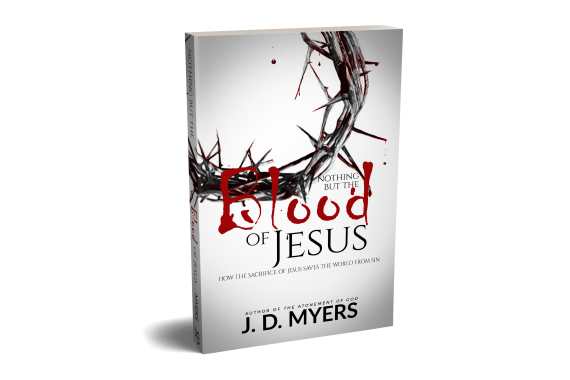
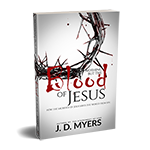
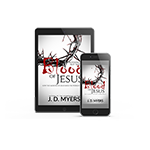

 Have you ever taught anyone some bad theology? I have. Sometimes I go back to look through the sermons I preached when I was a pastor fifteen years ago, and I cringe at some of the things I said back then. Sometimes I wonder if fifteen years from now I will cringe at some of the stuff I teach today…
Have you ever taught anyone some bad theology? I have. Sometimes I go back to look through the sermons I preached when I was a pastor fifteen years ago, and I cringe at some of the things I said back then. Sometimes I wonder if fifteen years from now I will cringe at some of the stuff I teach today…


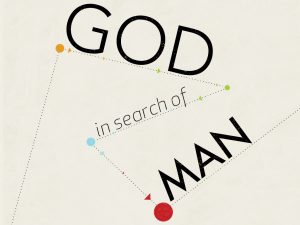 The death of Jesus on the cross was not to reconcile an angry God to sinful and rebellious humanity. No, the death of Jesus on the cross was completely one-sided; it was to reconcile a fearful humanity to a loving God. God was in Jesus reconciling the world to Himself (2 Cor 5:19); not the other way around.
The death of Jesus on the cross was not to reconcile an angry God to sinful and rebellious humanity. No, the death of Jesus on the cross was completely one-sided; it was to reconcile a fearful humanity to a loving God. God was in Jesus reconciling the world to Himself (2 Cor 5:19); not the other way around. 
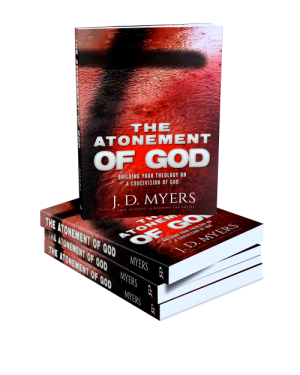


 How can a God who says "Love your enemies" (Matthew 5:44) be the same God who instructs His people in the Old Testament to kill their enemies?
How can a God who says "Love your enemies" (Matthew 5:44) be the same God who instructs His people in the Old Testament to kill their enemies?
